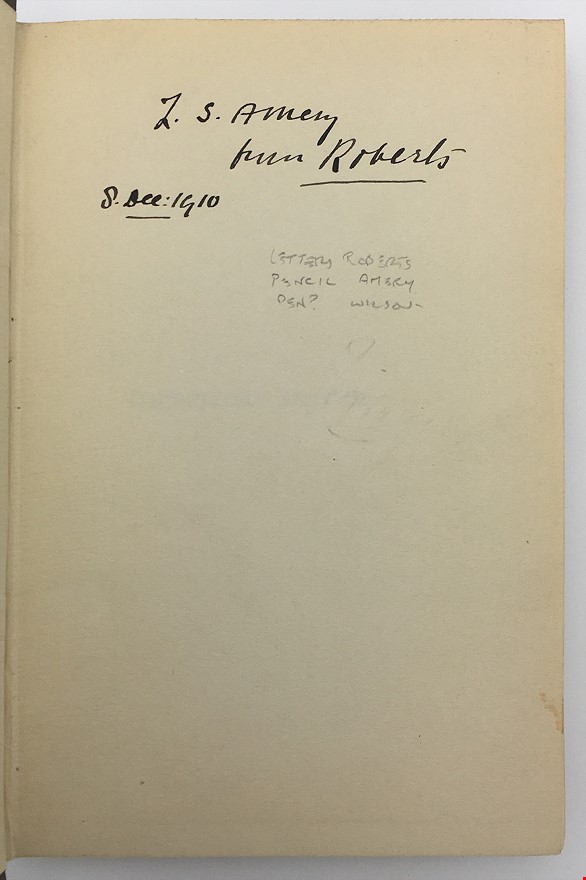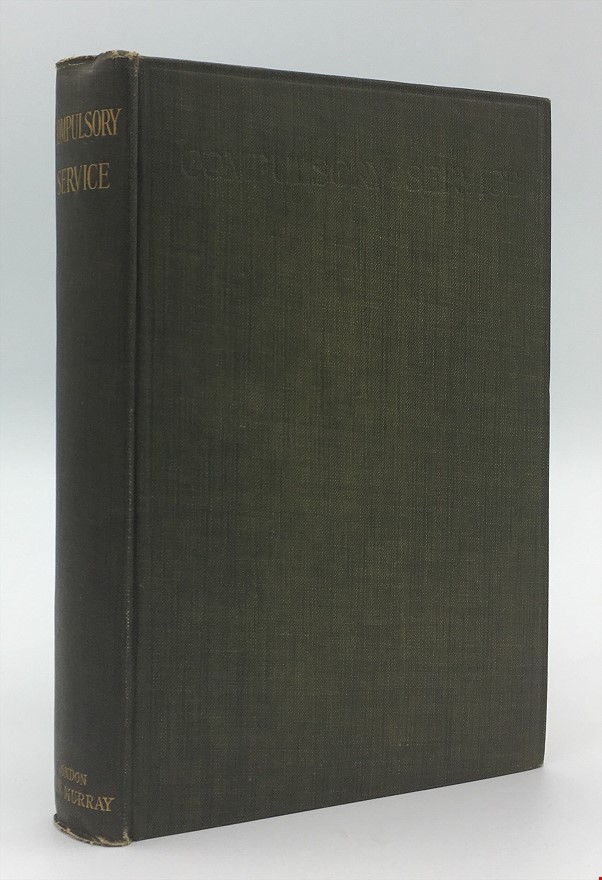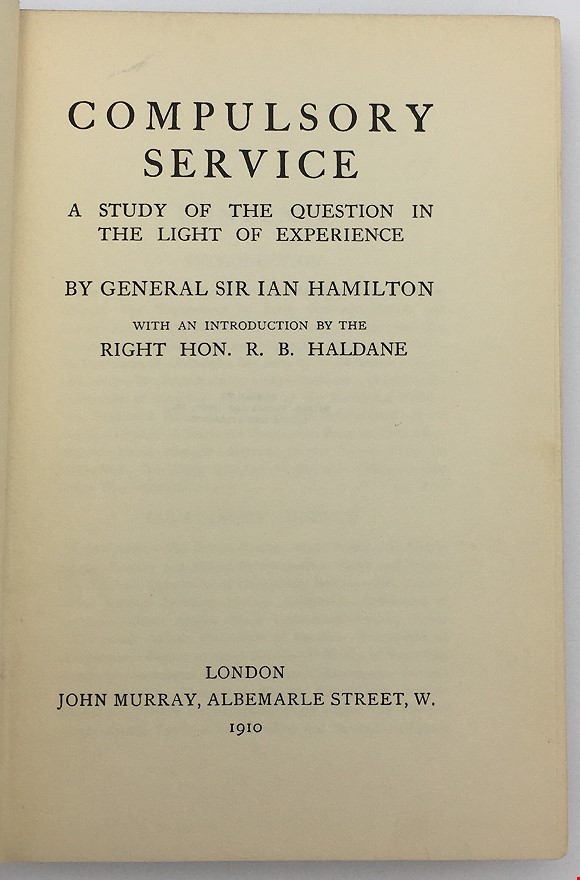Compulsory Service. A Study of the Question in the Light of Experience.
HAMILTON General Sir Ian.; HALDANE R.B. introduction (1910.)
£200.00 [First Edition]
Please contact us in advance if you would like to view this book at our Curzon Street shop.
First edition. 8vo., cloth. London, John Murray.
Inscribed on the front free endpaper by Field-Marshal the Earl Roberts 'L.S. Amery from Roberts 8. Dec: 1910'. Roberts published a reply to this volume in 1911, called 'Fallacies and Facts. An Answer to "Compulsory Service"', of which Amery wrote one of the three chapters. Conscription was in fact instituted in 1916.
Roberts published a National Service Bill in the House of Lords in 1909, at a time of great fear of possible German invasion plans, but failed to win over either of the main political parties. The aim of the bill was to establish a fighting force which would be able to withstand an invasion should the regular army be occupied abroad. Hamilton, who opposed conscription, and Roberts were friends, but the debate caused a rift between them. The text is heavily annotated in pen and pencil, the pen in the hand of Field-Marshal Sir Henry Hughes Wilson, an advocate of conscription, two of the annotations initialled HW. Wilson saw service in the Boer War, and in 1900 was briefly Roberts' Assistant Military Secretary, before they both returned home at the end of that year. In the next year Wilson served for nine months under Sir Ian Hamilton at the War Office. There are further annotations in ink by Roberts, which consist of various letters to the margins, for example A, E, F, G (followed by different numbers) and Z, and in pencil by Amery, mostly under and side-linings, with an occasional comment.
A.J.A. Morris in his book 'The Scaremongers' says 'Within four months the conscriptionists' reply to Haldane and Hamilton was on sale to the public. Roberts was named as author of 'Facts and Fallacies', but part had been contributed by Professor J.A. Cramb, and much the longest section dashed off in a few weeks by the volatile L.S. Amery. No one admired Roberts more than Amery. He contrasted the old warrior's kindliness, gentleness, patriotism and selflessness with the character of the oddly calculating Kitchener who made no secret of his contempt for "Poor old Roberts; just wasting his time. No one is going to listen to him. Nobody is going to organize the Army properly in peace".'.
Front board very slightly stained.
Stock Code: 221978






